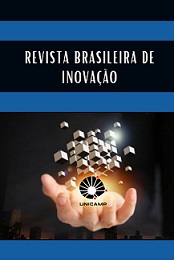Abstract
Having the electrification of means of transport phenomenon as a backdrop, the present article analyzes the institutional infrastructure of the Brazilian automotive sector, to understand the country's modest performance vis-à-vis leading electrification economies. More in detail, it looks at some central policies in the recent trajectory of the automotive sector and its implications for technological change. To do so, it sought to analyze, from the concept of Technology Innovation System (TIS), a way in which these policies relate to the implementation of the electric car, producing trends of institutional alignment, or not, which end up acting as mechanisms for inducing or blocking innovation. The analysis of these policies reveals an institutional infrastructure that is poorly aligned with the TIS in question.
References
ASSOCIAÇÃO NACIONAL DOS FABRICANTES DE VEÍCULOS AUTOMOTORES – ANFAVEA. Anuário da Indústria Automobilística Brasileira. São Paulo: AutoData Editora, 2021.
BERGEK, A. et al. Analyzing the functional dynamics of technological innovation systems: a scheme of analysis. Research Policy, Amsterdam, v. 37, p. 407-429, 2008.
BRASIL. Lei nº 12.715, de 17 de setembro de 2012. Diário Oficial da União, 18 set. 2012. Disponível em: http://www.mdic.gov.br/index.php/competitividade-industrial/setor-automotivo/inovar-auto. Acesso em: 29 maio 2020.
BRASIL. Câmara dos Deputados. Governo prevê redução do IPI para carros elétricos e híbridos. Agência Câmara de Notícias, 4 jul. 2018. Disponível em: https://www2.camara.leg.br/camaranoticias/noticias/TRANSPORTE-E-TRANSITO/559935-GOVERNO-PREVEREDUCAO-DO-IPI-PARA-CARROS-ELETRICOS-E-HIBRIDOS.html>. Acesso em: 3 jun. 2020.
CARLSSON, B.; STANKIEWICZ, R. On the nature, function and composition of technological systems. Journal of Evolutionary Economics, Berlin, v. 1, n. 1, p. 93-118, 1991.
COELHO, P.; ABREU, M. Transição sociotecnológica para a mobilidade urbana sustentável no Brasil. Revista de Administração da UFSM, Santa Maria, v. 12, p. 1227-1241, 2019.
CONSONI, F. L. et al. Estudo de governança e políticas públicas para veículos elétricos. Campinas: LEVE/ DPCT/ UNICAMP, 2018.
COSTA, J. O. P. Normalização para a inovação: o programa brasileiro de etiquetagem veicular (PBE-V). In: RAUEN, A. T. (Org.). Políticas de inovação pelo lado da demanda no Brasil. Brasília: Ipea, 2017. p. 121-177.
COWAN, R.; HULTÉN, S. Escaping the Lock-in: the case of the eletrical vehicle. Technological Forecasting and Social Change, Amsterdam, v. 53, n. 1, p. 61-79, 1996.
EDLER, J.; FAGERBERG, J. Innovation policy: what, why, and how. Oxford Review of Economic Policy, Oxford, v. 33, n. 1, p. 2-23, 2017.
FLICK, U. Desenho da pesquisa qualitativa. Porto Alegre: Artmed, 2009. 164 p.
FUNDAÇÃO GETULIO VARGAS – FGV. Carros elétricos. Cadernos FGV Energia, Rio de Janeiro, v. 4, n. 7, p. 1, 2017. GEELS, F. Socioechnical transitions to sustainability: a review of criticisms and elaborations of the multi-level perspective. Current Opinion in Environmental Sustainability, Amsterdam, v. 39, p. 187-201, 2019.
HOMMEL, T.; GODARD, O. Contestação social e estratégias de desenvolvimento industrial: aplicação do modelo da gestão contestável a produção industrial de OGM. In: VARELLA, M. D.; BARROSPLATIAU, A. F. (Org.). Organismos geneticamente modificados. Belo Horizonte: Del Rey, 2005. p. 251-284.
IBUSUKI, U.; BERNARDES, R.; CONSONI, F. New Brazilian automotive industrial policy: Analysis of the consequences for local R&D based on new comer’s strategies. International Journal of Automotive Technology and Management, Milton Keynes, v. 15, n. 63, p. 63-79, 2015.
INTERNATIONAL ENERGY AGENCY – IEA. Global EV Outlook 2021, accelerating ambitions despite the pandemic. Paris: IEA, 2021.
INTERNATIONAL ENERGY AGENCY – IEA. Global EV Outlook 2022, securing supplies for an electric future. Paris: IEA, 2022.
JACOBSSON, S.; BERGEK, A. Innovation system analyses and sustainability transitions: contributions and suggestions for research. Environmental Innovation and Societal Transitions, Amsterdam, v. 1, n. 1, p. 41-57, 2011.
JACOBSSON, S.; BERGEK, A. Transforming the energy sector: the evolution of technological systems in renewable energy technology. Industrial and Corporate Change, London, v. 3, n. 5, p. 815-849, 2004.
JACOBSSON, S.; LAUBER, V. The politics and policy of energy system transformation: explaining the German diffusion of renewable energy technology. Energy Policy, Guildford, v. 34, n. 3, p. 256-276, 2006.
JOHNSON, A.; JACOBSSON, S. Inducement and blocking mechanisms in the development of a new industry: the case of renewable energy technology in Sweden. In: COOMBS, R. et al. (Org.). Technology and the market: demand, users and innovation. Cheltenham e Northhampton: Edward Elgar, 2001.
KÖHLER, J. et al. An agenda for sustainability transitions research: state of the art and future directions. Environmental Innovation and
Societal Transitions, Amsterdam, v. 31, p. 1-32, 2019.
KUTNEY, P. Indústria automotiva toma o rumo da Rota 2030: Rota 2030 estimula a evolução tecnológica nas linhas de produção no País. Automotive Business, 15 abr. 2019. Disponível em: http://www.automotivebusiness.com.br/noticia/29055/industria-automotivatoma-o-rumo-da-rota-2030. Acesso em: 29 maio 2020.
LUCINDA, C. R.; PEREIRA, L. M. S. Efeitos da política de redução do IPI sobre o mercado de automóveis novos. In: ENCONTRO DA ASSOCIAÇÃO NACIONAL DOS CENTROS DE PÓS-GRADUAÇÃO EM ECONOMIA, 45., 2017, Natal. Anais... Niterói: ANPEC, 2017.
MAZZUCATO, M. O estado empreendedor: desmascarando o mito do setor público vs. setor privado. São Paulo: Portfólio-Penguin, 2015.
PLATAFORMA NACIONAL DE MOBILIDADE ELÉTRICA – PNME. Anuário Brasileiro da Mobilidade Elétrica. Rio de Janeiro, 2020.
PASCOAL, E. et al. The new Brazilian automotive policy and its impact on the competitiveness of multinational automobile and auto parts manufacturers. International Journal of Automotive Technology and Management, United Kingdom, v. 17, n. 3, p. 225-247, 2017.
RAO, H. Institutional activism in the early American automobile industry. Journal of Business Venturing, New York, n. 19, p. 359-384, 2004.
REIS, A. Fizemos as contas: governo prometeu “reduções”, mas tem modelo que vai até pagar mais do que atualmente. UOL, 3 set. 2018. Disponível em: https://carros.uol.com.br/noticias/redacao/2018/09/03/ficou-bom-novas-regras-para-ipi-nao-significam-carro-eletricomais-barato.htm. Acesso em: 29 maio 2020.
WOLFFENBUTTEL, R. A produção social da inovação: o automóvel elétrico e as redes de inovação no Brasil. Porto Alegre: Cirkula, 2021.
ZIMMERMAN, M. A.; ZEITZ, G. J. Beyond survival: achieving new venture growth by building legitimacy. Academy of Management
Review, Ohio, v. 27, n. 3, p. 414-431, 2002.

This work is licensed under a Creative Commons Attribution 4.0 International License.
Copyright (c) 2022 Revista Brasileira de Inovação


